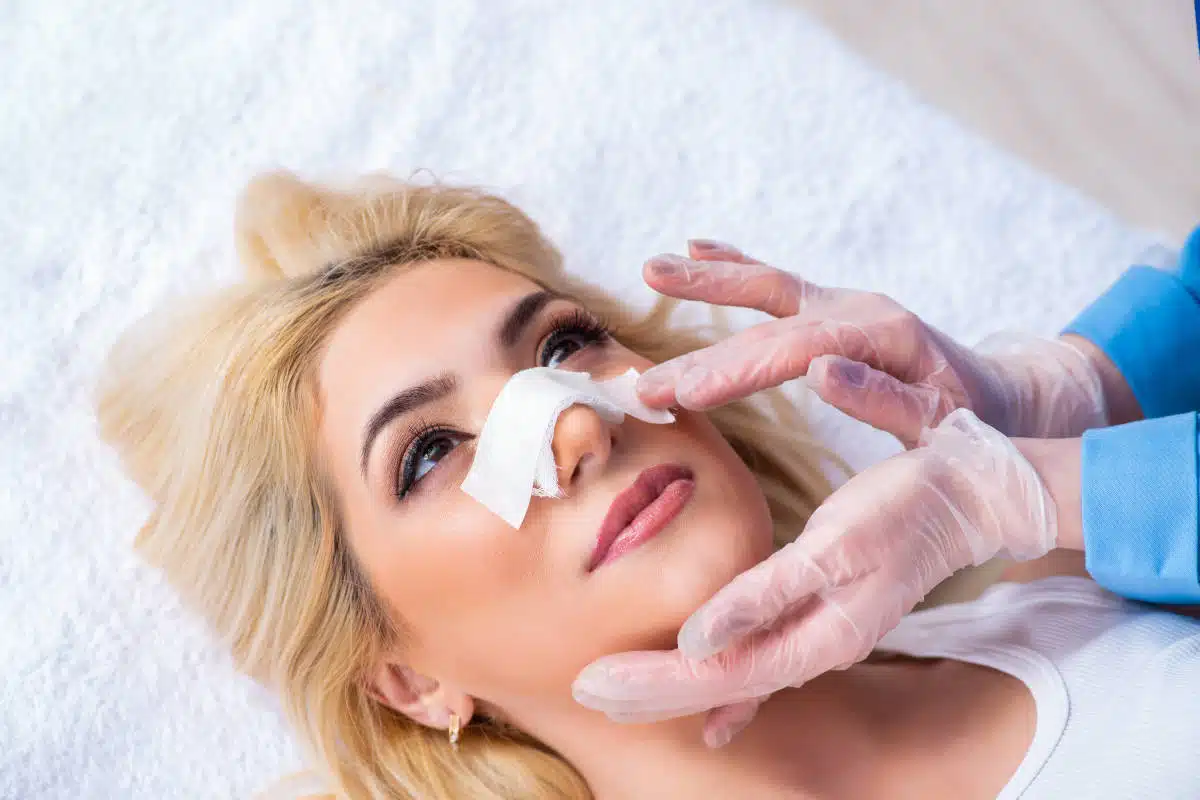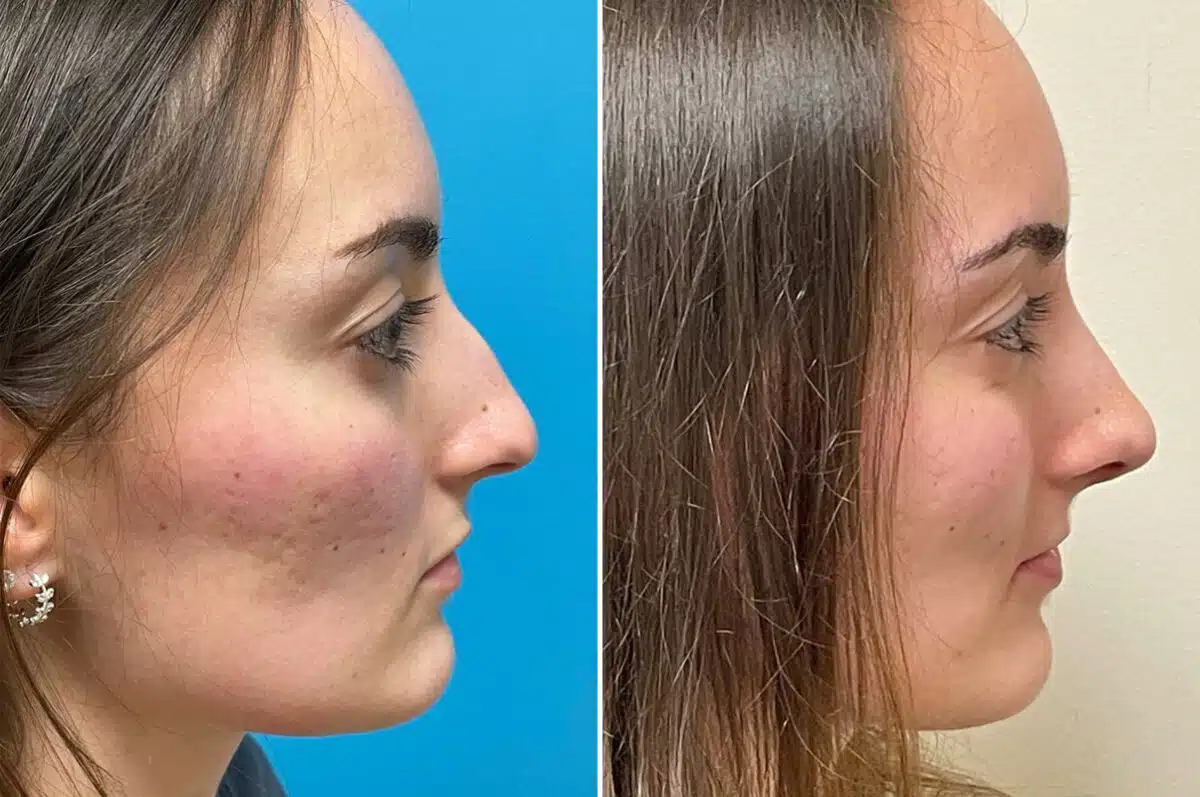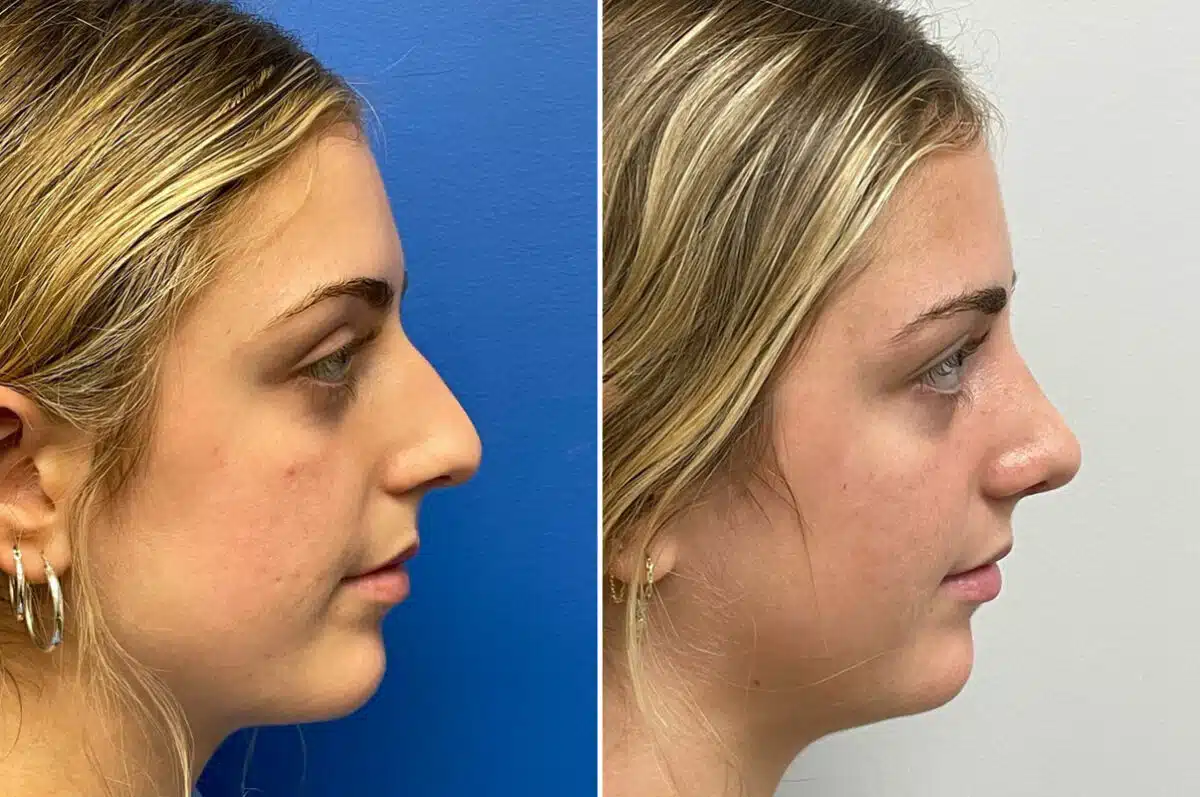How Long Does a Nose Job Take to Heal?

Rhinoplasty, also called a “nose job,” is one of the most popular types of cosmetic surgery. It can make the nose look and work much better. But it’s understandable that a lot of people are worried about how long it will take to get better and do normal things again.
In this post, we’ll discuss the overall recovery time for rhinoplasty and revision rhinoplasty, the typical recovery timeline, and tips to help speed up the healing process.
How Long Is The Healing Process after a Nose Job?
The recovery time for a nose job varies from person to person, and each individual’s healing process will be different so it is good to plan plane trips carefully before rhinoplasty. Most people can go back to work and doing light daily tasks two to three weeks after surgery. For a full healing from surgery, which includes getting rid of any remaining swelling and getting the nose’s final shape, it can take a year or more. You should be patient during this time and do what your plastic surgeon tells you to do to make sure your healing goes smoothly.
The Rhinoplasty Recovery Timeline
After rhinoplasty, it’s normal to have some facial swelling, mild pain or soreness, and nasal bleeding in the first 24 hours.
These symptoms are typical during the initial recovery period and should be manageable with pain medication and a cold compress. During this time, it’s essential to get plenty of rest, keep your head elevated, and avoid any physical exertion. Proper healing begins in these crucial hours after surgery, and following your surgeon’s post-operative instructions will help ensure a smooth recovery.
1 Day Post-Op
Seven days after surgery, your plastic surgeon will likely remove your nasal splint and any stitches. You may still have some noticeable swelling and facial bruising, but most patients can start to resume light activities at this point and even fly home if they come from another town. Following aftercare recommendations is essential for a successful recovery and reducing the risk of problems. To aid recovery, you should avoid vigorous activities, protect your nose from direct sun exposure, and eat a healthy diet. Attending all scheduled follow-up appointments is also essential for monitoring your progress and answering any recovery-related issues.
1 Week Post-Op
Two weeks following your nose surgery, you should find a notable decrease in facial edema and degree of discomfort. Most patients can go back to work and resume everyday activities without showing obvious indications of surgery; although, they should continue to avoid severe exercise and any activity that might possibly damage their nose. Healthy food, sufficient rest, and using cold compresses or ice packs on swollen nasal tissues will support proper blood flow and healing.
By adhering to your surgeon’s post-operative instructions, you can ensure a smooth recovery process and minimize potential risks associated with an open rhinoplasty surgery.
2 Weeks Post-Op
Most patients can resume modest exercise and cardiovascular activity a month following their rhinoplasty surgery. You still should avoid any contact sports or intense activities that can compromise your healing nose tissue. Although you might still have some residual edema, over the next few months this should start to go. Maintaining a balanced diet high in minerals and protein is crucial during this period to give your body the tools it need to repair. Regular follow-up visits to your plastic surgeon will also aid to guarantee that your recuperation is on target and handle any issues you might have.
1 Month Post-Op
You can usually resume most regular activities, even more strenuous ones like sports, within three to six months following your nasal surgery. But don’t stop going to your follow-up checkups and following your surgeon’s specific orders. Remember that it may take a few more months for the swelling in your nose to completely go down. You may maximize the benefits of your rhinoplasty cosmetic surgery by being careful and patient as you heal.
Six Weeks Post-Op
Secure Your Safe Treatment Experience with Dr. Daniel G. Becker.
Join our satisfied clients who’ve experienced safe, effective treatments.
How to Speed Up the Healing Process
Follow Your Surgeon’s Instructions
Adhering to your plastic surgeon’s post-operative instructions is crucial for a smooth recovery and minimizing the risk of complications. Make sure to attend all follow-up appointments and ask any questions about recovery that you may have.
Avoid Vigorous Exercise
It is very important to stay away from vigorous exercise and other physically demanding tasks during the first few weeks of recovery. If you push yourself too hard, you might end up with problems like more swelling, bleeding, or damage to your nose. Gradually increase your activity levels as advised by your surgeon.
Sleep Reclined
During the first few weeks, sleeping on your back with your head elevated can help reduce swelling and promote proper blood flow. It’s recommended to use pillows to prop yourself up at a 45-degree angle while sleeping for the first few weeks after surgery.
Get Plenty of Rest
Getting enough rest is very important for a quick recovery. Make sure you get enough sleep and don’t push yourself too hard while you’re healing. Pay attention to your body and give it the time it needs to heal.
Eat More Veggies and Protein
A good diet can have a big impact on your recuperation. Focus on foods high in protein and vegetables, as they give your body with the resources it requires to recuperate. Protein-rich diets such as lean meats, fish, and beans can help heal damaged tissues, whereas veggies contain important vitamins and minerals.
Use Cold Compresses
Applying cold compresses or ice packs to the area around your nose can help swelling subside and alleviate discomfort. Before putting the cushion on your nose, make sure to wrap it in a soft cloth. As you heal, make sure you follow your surgeon’s advice about how often to use cold packs.
Don’t Smoke
Smoking can significantly slow down the healing process and increase the risk of complications after rhinoplasty surgery. It’s crucial to avoid smoking for at least a few weeks before and after your procedure to ensure proper healing and minimize potential risks.
Keep It Cool
Staying in a cool environment during your recovery can help reduce rhinoplasty swelling and discomfort. Keep the temperature in your home comfortable and avoid activities that could cause you to overheat, such as spending time in saunas or hot tubs.
Keep Your Head Elevated
Keeping your head in an elevated position during the initial recovery period can help minimize congestion, swelling, and bleeding, even when you are not sleeping. Avoid bending over or lifting heavy objects for the first few weeks after surgery.
Do Not Blow Your Nose
Blowing your nose can increase pressure in the nasal passage and potentially cause complications during the healing process. Avoid blowing your nose for at least the first week after surgery, and follow your surgeon’s instructions on when it’s safe to do so.
Don’t Wear Glasses
Avoid wearing glasses or sunglasses for the first few weeks after your nose job surgery. The pressure from the frames can cause indentations and affect the healing process. Your surgeon may recommend using tape to support your glasses or switching to contact lenses during the recovery period.
Stay Away From the Sun
Excessive sun exposure can increase the risk of complications and prolong the healing process. Protect your skin from the sun by wearing a wide-brimmed hat and applying a broad-spectrum sunscreen with an SPF of 30 or higher. Limit your time outdoors, especially during peak sun hours, and avoid tanning beds for at least a few months after surgery.
Choosing the Right Plastic Surgeon to Ensure a Smooth Recovery
Selecting a qualified and experienced plastic surgeon is crucial for a successful rhinoplasty and a smooth recovery. Dr. Daniel G. Becker of Becker Rhinoplasty Center in New Jersey is an expert in rhinoplasty. His expertise allows him to make precise surgical decisions, minimize complications, and optimize the healing process.
Look for a board-certified surgeon, who has extensive experience with rhinoplasty procedures and can provide before-and-after photos of their work. Additionally, choose a surgeon who prioritizes patient education and provides personalized instructions for post-procedure care.
During your consultation, ask questions about the surgeon’s experience, their approach to rhinoplasty, and their recommendations for your specific needs. A skilled and compassionate surgeon will be able to address your concerns, provide personalized advice, and ensure a safe and effective procedure with optimal results.

